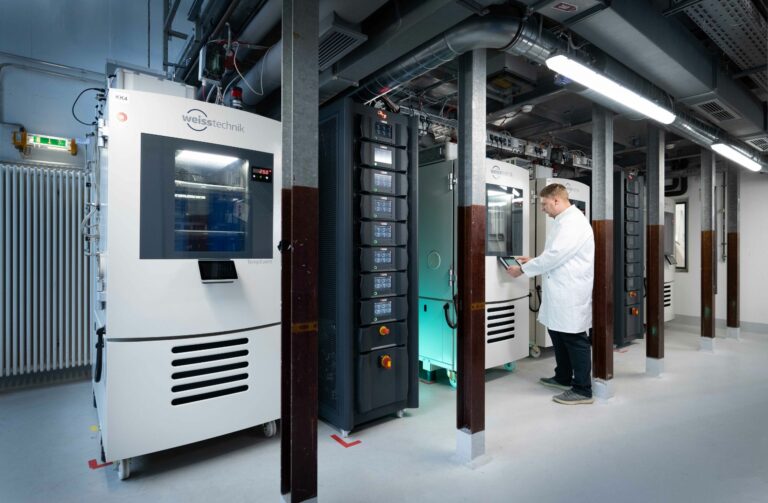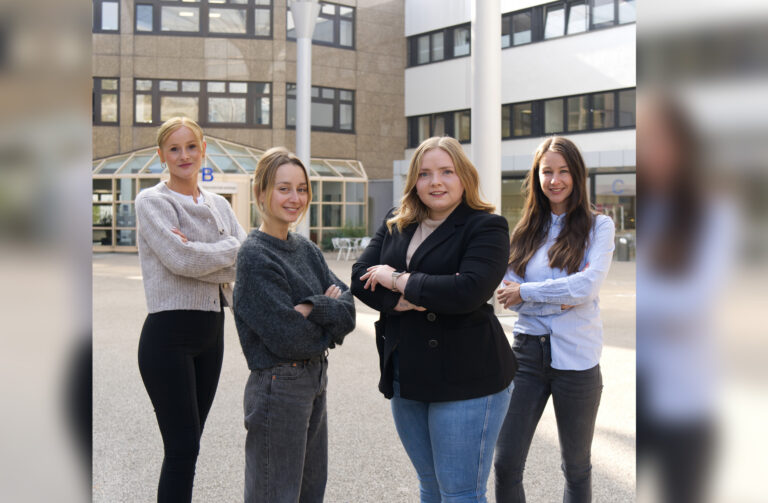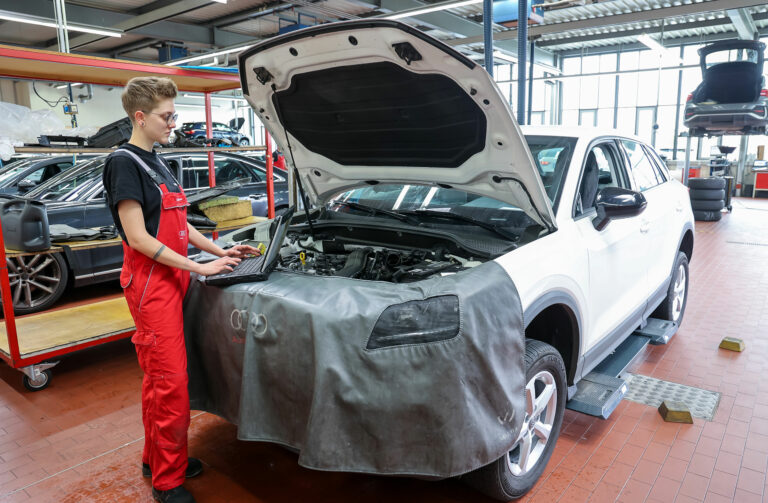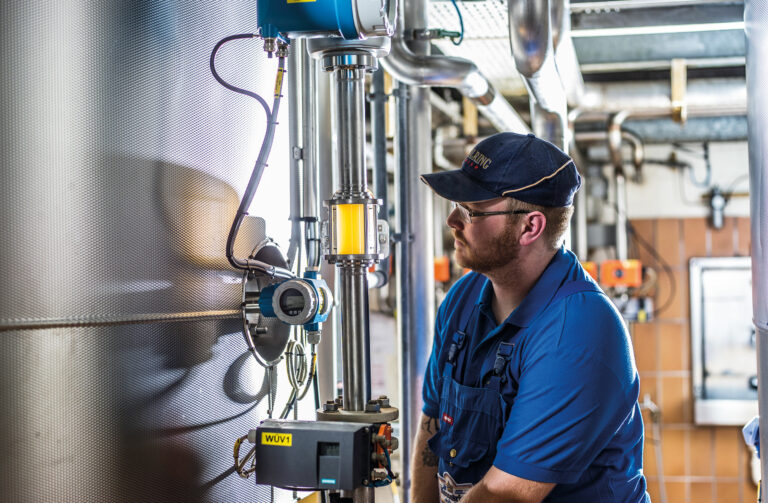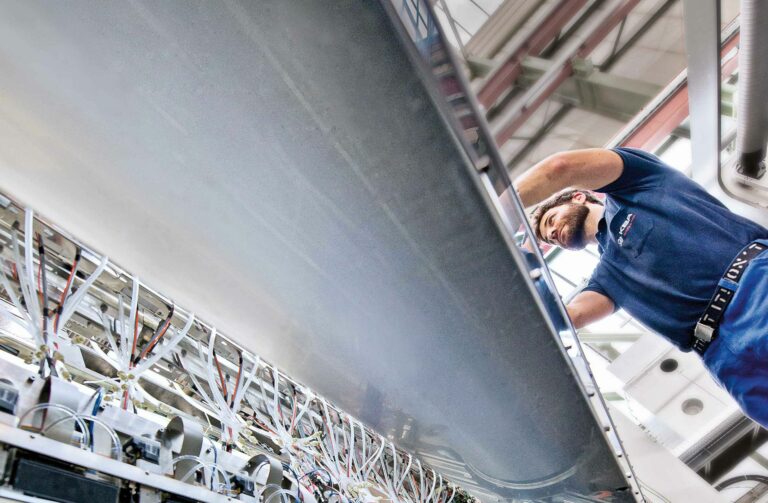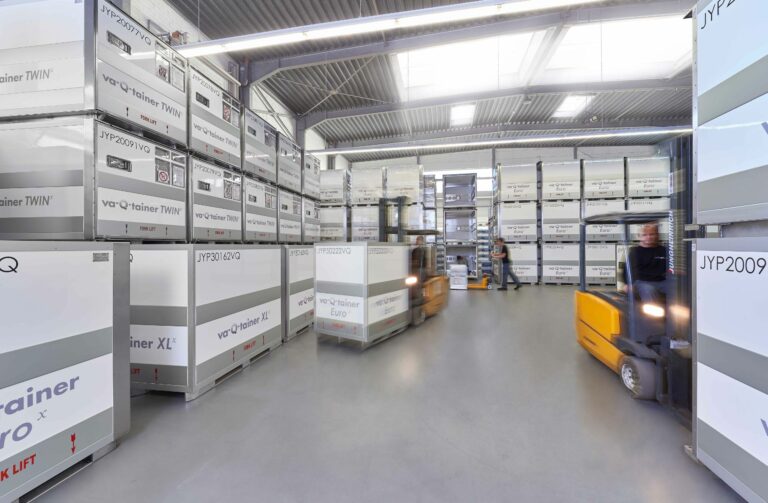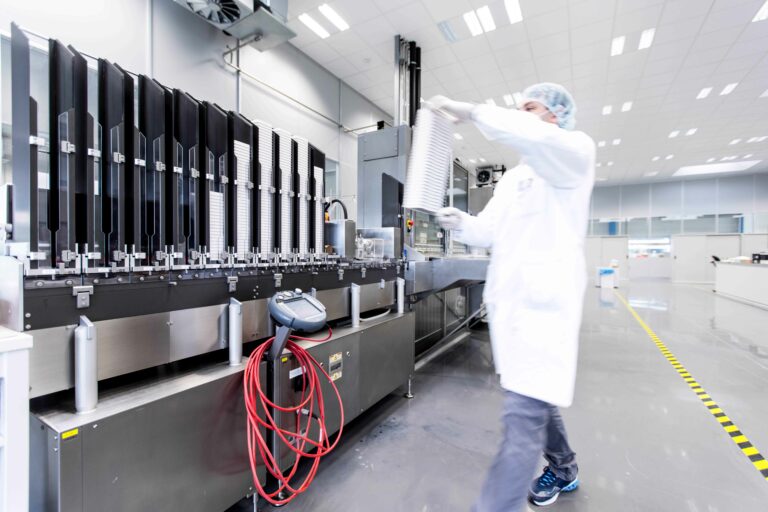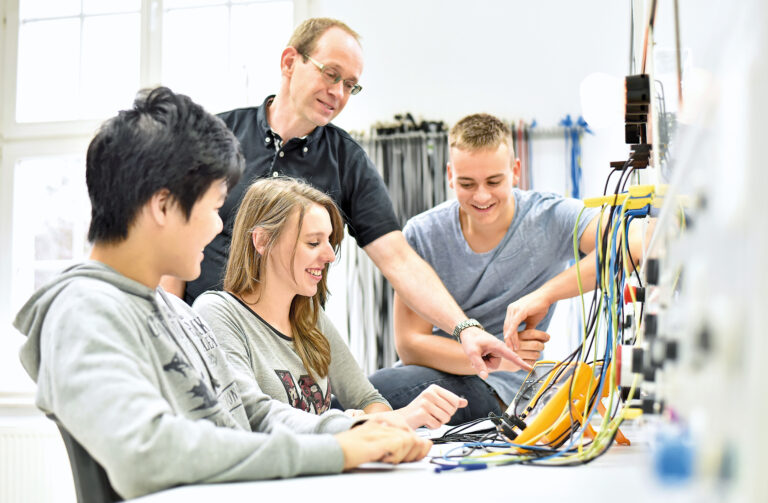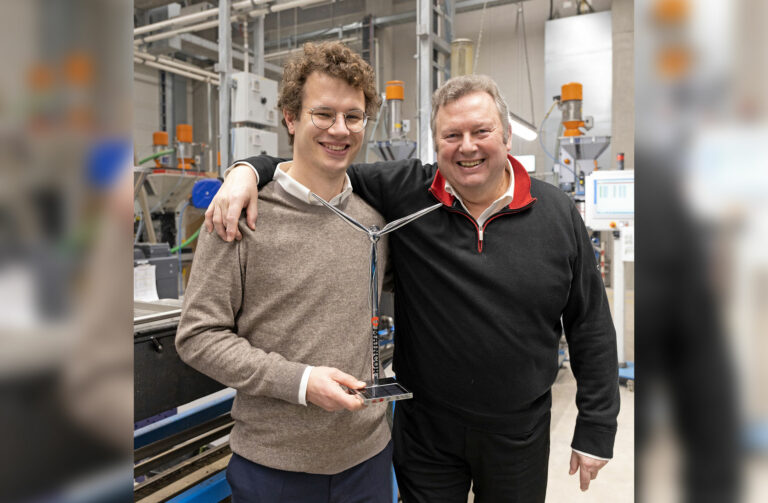Education and further training: Basis for success at work
Let’s be clear, vocational education and training are excellent advantages of the region that are also the envy of many political and business leaders around the world. The broad and practical range of knowledge, skills and abilities of the next generation of skilled workers and managers leads to low youth unemployment, even by international standards. In 2022, for example, the Main Franconian metropolis of Würzburg had the lowest youth unemployment rate in Germany in an IW Consult city ranking.
After finishing school, more than 50 per cent of young people nationwide opt for dual vocational training. In doing so, they have a choice of 324 recognised training occupations. If we take the number of actually registered apprenticeships in the Main Franconia region as a benchmark, 55 per cent of all young people opt for dual vocational training in industry, trade and services. However, it is also recognisable that the number of apprenticeship contracts concluded has decreased overall in recent years.
There are many reasons for this, ranging from demographic development, the increasing onus on academic training, the Covid-19 pandemic and more and more overlapping crises. In addition, the entrepreneurial economy is confronted with a glaring shortage of skilled workers in almost all sectors. Based on recurring economic surveys, companies based in Main Franconia regularly see the lack of skilled workers as one of the biggest obstacles to the economy. Vocational education and training, on the other hand secures the supply of new, young, qualified skilled workers that the regional economy so urgently needs in times of staff shortages, growing complexity and the new technologies of the future.

Excellent prospects for the future
People with vocational qualifications currently have excellent prospects for employment, a career and earnings, especially in future due to demographic factors. The elementary basis for this is the Vocational Training Act (BBiG), which has provided a uniform framework for vocational education and training for more than 50 years. A special feature of this form of vocational education is that the learning takes place at two venues. While the company imparts practical knowledge as a learning venue, the vocational college provides the theoretical foundations. This ensures that the necessary knowledge and skills are taught in an ever-changing world of work.
The job and career opportunities depend on the regional diversity of industries. In Main Franconia, a total of 116 apprenticeship occupations and 26 professional education and training qualifications are available in industry, commerce and the service sector. The quality of in-company vocational training in Main Franconia is exemplary. The pass rate is well over 90 per cent. Nationwide, six young Main Franconian trainees ranked first in their respective apprenticeship occupations in 2022 – an “all time high” for Main Franconia. Furthermore, education and further training models are regularly developed based on the target group, and the content and methods are adapted to new technologies or trends as part of updating the training offer. This applies in particular to the fields of digitalisation, e-mobility, the energy transition, sustainability, artificial intelligence (AI) and robotics.
Comprehensive guidance
Comprehensive and goal-oriented career guidance is crucial for choosing the right career or educational path. A professional network of many regional stakeholders provides the necessary information and decision-making support for the transition between school and the labour market. Given the huge variety of training opportunities, many individual education partnerships are emerging between companies and general education schools. In recent years, the latter have received significantly more time for job preparation content through improved syllabuses. The school approach is complemented by the CIC apprenticeship scouts reporting from practical experience, in which apprentices in their second or third year of training visit all types of schools – from Bavarian secondary schools to grammar schools – and provide an authentic and detailed insight into the actual world of apprenticeships. Apprenticeship fairs in all regions of Main Franconia as well as numerous career information days in the form of training fairs round off the extensive range of information for young people and parents.
Young people who do not yet feel ready for vocational training after their school education also have the opportunity to get to know the corporate world and individual apprenticeship occupations for several months through an introductory qualification. Funding is provided by the employment agency. The introductory qualification can be credited towards standard training later.
Every qualification leads somewhere
The vocational education and training system meets the individual needs and requirements of apprentices and continuous education and training participants in an exemplary manner. This includes the respective school leaving certificate, the skills and knowledge already acquired, but also the personal life and work perspective. Almost all career paths are open to young people.
The flexibility of the Vocational Training Act makes it possible, for example, to reduce or extend training periods or undertake part-time training. A stay abroad can also be realised in coordination with the training company. Apprentices that excel in their training always have the option of completing suitable additional qualifications during the apprenticeship period or combining their vocational training with a higher vocational education and training qualification.
The continuing vocational education and training regulations also offer great flexibility in preparing for higher vocational education and training qualifications. Each participant can decide which form of training is best for them based on their personal requirements and needs. The chambers of commerce and other education providers offer a wide range of preparatory practical courses, either full-time or part-time, in-person, virtually or in hybrid form. Only the vocational qualification examination passed and the vocational experience gained are decisive for admission to the examination.
The recognition of vocational qualifications acquired abroad is particularly important in light of the shortage of skilled workers. The IHK-FOSA (Foreign Skills Approval), the nationwide skills centre in Nuremberg, deals with establishing the equivalence of foreign vocational qualifications. In addition to full recognition, partial recognition can also be granted. Any identified gaps can be addressed by acquiring individual practical or theoretical skills. Overall, the notice of recognition provides applicants and companies with an important statement about sensible use within the company.

Equivalence of academic and vocational education and training
The German Qualifications Framework (DQR) compares and evaluates qualifications in the German education system. It is based on the European Qualifications Framework (EQF) and takes into account all aspects and special features of the German education system. For the first time, the German Qualifications Framework system is prominently establishing the equivalence of vocational and academic education. It is to be stressed that the German titles of Meister, Fachwirt and Fachkaufleute or Betriebswirt are comparable to bachelor’s and master’s degrees at universities and colleges in terms of their acquisition of skills. Consequently, higher vocational education and training qualifications also carry the titles “Bachelor Professional” or “Master Professional”.

Higher vocational education and training pays off
Continuing vocational education and training based on initial work experience and leading to a higher vocational education and training qualification pays significant dividends for everyone involved. According to a nationwide survey by the German Chamber of Industry and Commerce (GCIC) in 2023, around 60 per cent of graduates earn more money after successfully completing their CIC further training qualification. Furthermore, 57 per cent of graduates are given a more responsibility at their company. Continuing vocational education and training has an even more positive impact on the personal development of graduates. For example, 93 per cent said that it had broadened their individual perspective and clearly increased their self-confidence. As a result, around 90 per cent of graduates said they would opt for the same continuing vocational education and training qualification again
Performance is rewarded
In addition to the funding opportunities provided by the attractive Upgrading Training Assistance Act (Aufstiegsfortbildungsförderungsgesetz, AFBG), or also colloquially known as “Aufstiegs-BAföG”, the Free State of Bavaria supports every successful qualification in higher vocational education and training with the Meisterbonus, currently amounting to 3000 euros. In 2023, a total of 662 skilled workers and managers in Main Franconia benefited from this additional funding. So, there is nothing standing in the way of a successful professional career.
Header picture: In Main Franconia, a total of 116 apprenticeship occupations and 26 professional education and training qualifications are available in industry, commerce and the service sector. Photo: industrieblick/stock.Adobe.com


